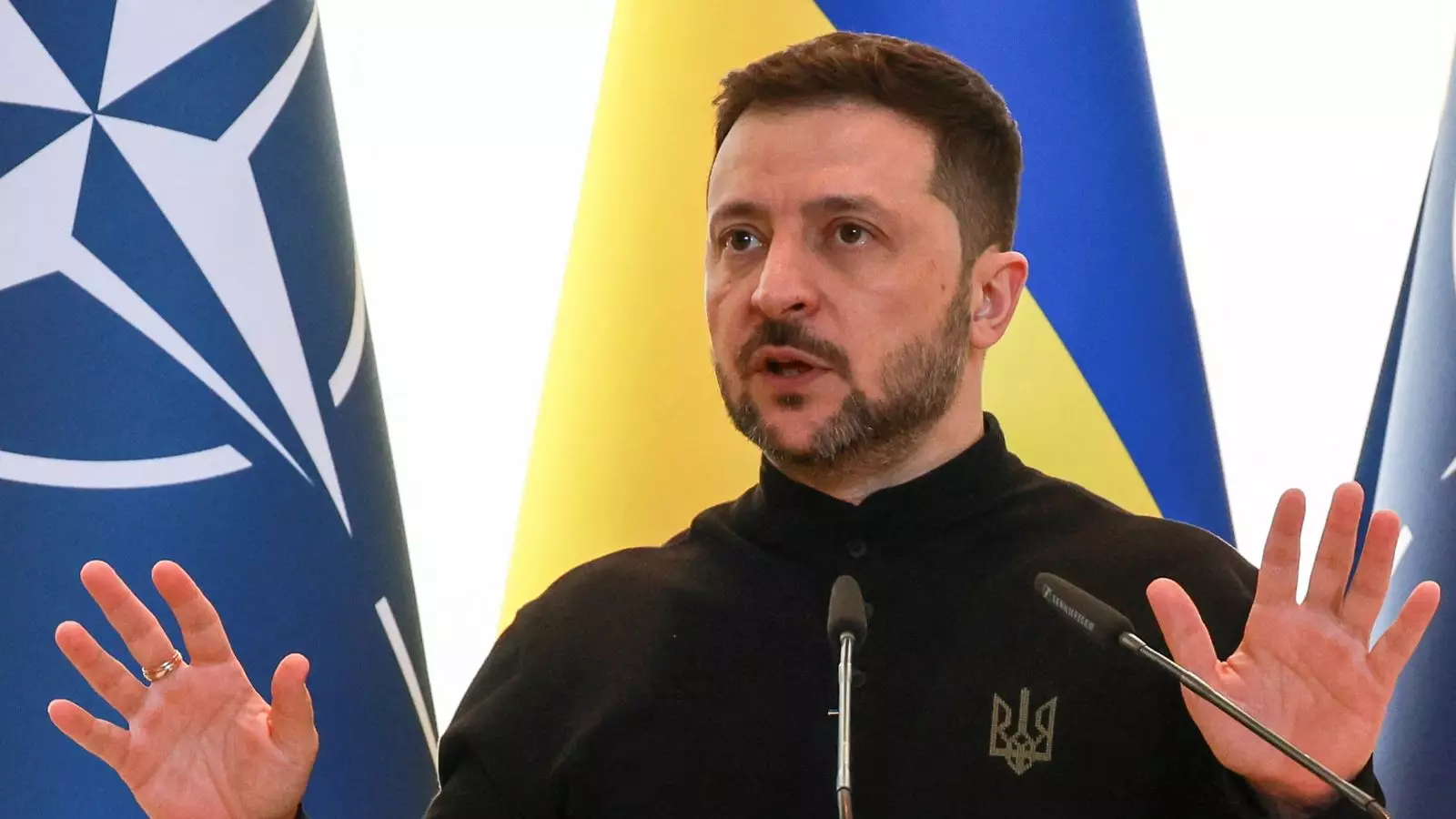In the ongoing saga of the war in Ukraine, one aspect stands out amidst the cacophony of political maneuvers and public posturing: the desperate cry for genuine diplomatic engagement. Sir Keir Starmer’s recent conversation with Ukrainian President Volodymyr Zelenskyy underscores this sentiment, as they echoed a collective wish to end what has been characterized as Russia’s “brutal war.” Yet, the reality is considerably bleaker when we consider the historical context of peace talks, marked by a series of broken promises and unfulfilled agreements. While Starmer’s declarations of “iron-clad support” ring loudly, one must wonder—how much weight do these words truly carry in a world where talk often eclipses meaningful action?
Putin’s Repeated Ploys
Vladimir Putin’s sudden openness for bilateral talks might appear as a glimmer of hope. However, upon closer examination, it reads more like a cynical strategy to diffuse international pressure while perpetuating the conflict. The Easter truce, initially pitched as a gesture of goodwill, quickly devolved into accusations of violations on both sides—the number of infractions reaching over two thousand in just a single day. This farcical display of a truce, reminiscent of past peace initiatives, reveals the pattern of deceitful tactics employed by Russia. Putin’s willingness to discuss a longer ceasefire is little more than a façade, masking the harsh reality that he has yet to demonstrate any serious commitment to peace.
The Dynamics of Western Support
The West’s support for Ukraine, as articulated by leaders like Starmer and the U.S. administration, is fueled by a complexity of motivations—including geopolitical strategy and the moral imperative to uphold democratic values against authoritarian aggression. Yet, the efficacy of this support comes into question as figures like Donald Trump insinuate a transactional nature to peace talks, suggesting that the U.S. may withdraw from mediation unless swift progress is achieved. This threat of abandonment is particularly disconcerting, as it places additional pressure on Ukraine to negotiate from a position of vulnerability, perhaps even compromising on critical issues that affect its sovereignty.
A Broken System
The current framework for international negotiations appears broken. With Putin’s insistence on verification protocols and ongoing military offensives, it is evident that the Russian government is less interested in true reconciliation and more invested in a strategic advantage. The coalition of nations rallying behind Ukraine, while commendable, needs to pivot from mere rhetoric and symbols of solidarity to a robust framework that empowers Ukraine in its fight for survival. The notion of a “just and lasting peace,” championed by Zelenskyy, encapsulates an ideal that currently feels more like a distant dream than a foreseeable reality.
The Role of the International Community
Given the escalating complexities of the conflict, what role does the international community play in steering Ukraine toward a sustainable resolution? The recent talks between Zelenskyy and Starmer illustrate a willingness to support Ukraine, yet that support must be defined not just in statements, but in actionable commitments. The upcoming discussions in London may provide an opportunity for tangible policy development, but they also come with significant stakes. The negotiations must center around creating a path that empowers Ukraine, rather than subjecting it to the whims of negotiation fatigue or external pressures.
Hope Amidst Despair
Despite the dire circumstances, there remains a flicker of hope within the Ukrainian spirit and determination for peace. The resilience shown by Zelenskyy and his government amidst adversity should not be dismissed as mere bravado. Instead, it reflects a broader societal resolve to chart a path towards sovereignty and democratic ideals, opposing the autocratic pressures from the East. However, this hope must be nurtured by the international community through unwavering and meaningful support that prioritizes Ukrainian interests. Without it, the cycle of violence and despair is unlikely to relent, leaving hollow promises as the only legacy of diplomacy.

